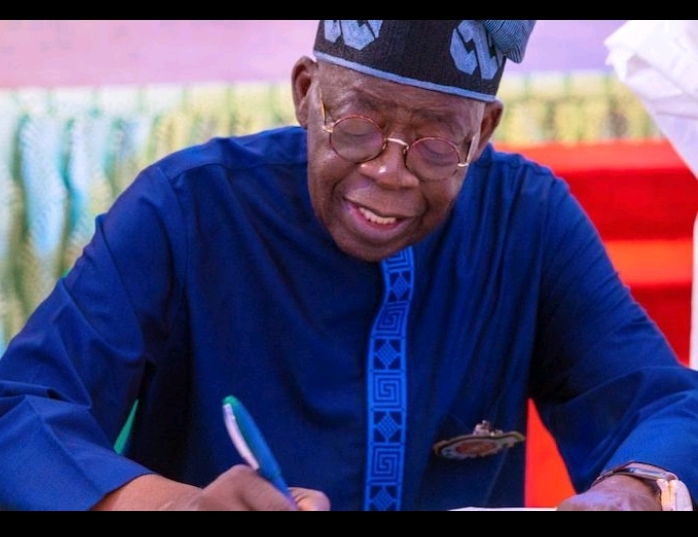Nigeria’s debt service-to-revenue ratio drops 32% in 17 months — Tinubu
President Bola Tinubu on Monday announced that Nigeria’s debt service-to-revenue ratio has decreased from approximately 97 per cent when he assumed office 17 months ago to 65 per cent currently.
Tinubu stated that his administration has managed to keep the country afloat despite inheriting an economy on the brink of bankruptcy.
The President stated while swearing in seven new ministers at the Council Chamber of the State House, Abuja.
He said, “For us, it was a challenge when the nation was servicing its debt with 97 per cent of its revenue. It was nothing but the edge of the cliff.
“But today, I can report to you that we have brought that down to 65 per cent, and we have never defaulted in meeting all obligations, both foreign and domestic.
“We have our head above water. All other countries around us and across the world are also facing challenges.”
His comments follow Afreximbank’s recent prediction that Nigeria’s debt service-to-revenue ratio could reach 110.4 per cent in 2024.
“The debt service-to-revenue ratio has increased significantly, from 33.8% in 2017 to a projected 110.4% in 2024, signalling potential difficulties in meeting debt servicing obligations relative to revenue generation,” Afreximbank said in its ‘Nigeria Country Brief 2024’ report in July.
This brief analysed Nigeria’s economic performance, trade dynamics, fiscal policies, and financial sector developments.
It showed that Nigeria’s debt servicing bill consumed 66.9 per cent (₦5.79tn) of the total revenue of ₦8.65tn in the first nine months of 2023, compared to 99.3 per cent (₦4.23tn) in the same period of 2022.
New ministers for swearing-in today
However, Afreximbank suggested that the ratio could drop to 62.6 per cent by 2025 with continued structural reforms and fiscal management by the government.
Tinubu expressed optimism about economic recovery, stating that the country is on a “good path” despite the cost-of-living crisis sparked by months of strict economic reforms.
The President said, “We have taken the bull by the horns. We have stopped the scavengers. We will fully put an end to the profiteers and smugglers of our resources across the country.
“We are not shirking our responsibility; we are confronting it head-on.
“Economic recovery is on the horizon. We are on a good path to realise our dreams, not just for us, but for our children and grandchildren.”
He added, “Despite the challenges, we must undertake the job of re-engineering and retooling this country’s economic path.
“Yes, the cost of living has risen. I acknowledge that. We have fulfilled our obligation of paying a new minimum wage across the board…we are navigating through this and working diligently.”
The new cabinet members took their oaths in two batches—first in groups of four and then of three—after their citations were read by the State House Director of Information, Mr Abiodun Oladunjoye.
The first group included Idi Maiha (Minister of Livestock Development), Yusuf Ata (State, Housing and Urban Development), Dr Suwaiba Ahmad (State, Education), and Bianca Odumegwu-Ojukwu (State, Foreign Affairs).
Afterward, Dr Jumoke Oduwole (Industry, Trade and Investment), Dr Nentawe Yilwatda (Humanitarian Affairs and Poverty Reduction), and Muhammadu Dingyadi (Minister of Labour & Employment) took their oaths before the President.
In a significant cabinet reshuffle on October 23, Tinubu re-assigned 10 ministers to new portfolios, discharged five others, and nominated seven new ministers for confirmation by the Senate.


























